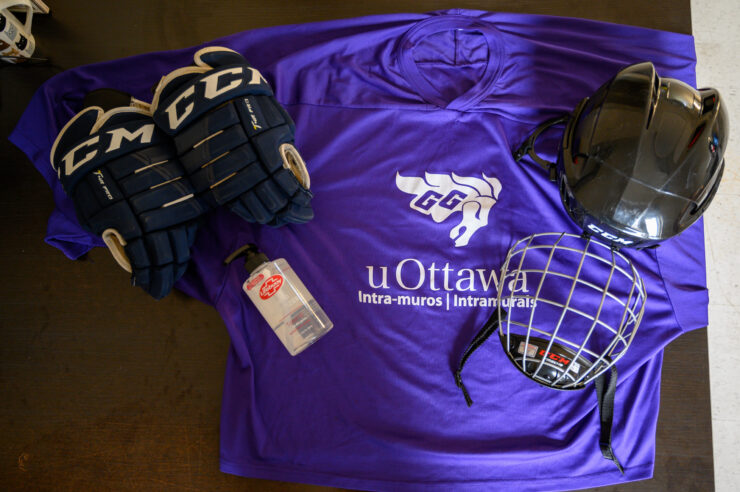Since the beginning of the pandemic access to abortion supports have been hindered
CW: Abortion. A list of abortion and sexual health resources can be found at the bottom of this article.
COVID-19 has created a time of global uncertainty that has affected access to reproductive rights and services in Ottawa. Due to the pandemic, specific resources such as abortions and postpartum assistance have been more difficult to access.
Today, two types of abortion procedures are available in Canada. These include the pill option (which can be taken up to nine weeks of gestation) and a clinical procedure (which can be done up to 24 weeks of gestation).
Ariane Wylie, a medical abortion access coordinator from Planned Parenthood Ottawa (PPO), explained the added difficulties of accessing treatment during the pandemic.
“Some providers have switched to phone or video appointments for part of the abortion process such as counselling [in order] to reduce the risk of COVID-19 transmission and some clinics have slightly longer wait times due to reduced capacity,” said Wylie.
She continued to explain that statistically in Canada, abortion is extremely common.
“Research shows that 31 per cent of Canadian women will have an abortion before turning 45,” said Wylie. “Trans men and non-binary people in Canada also access abortion care. Despite the fact that it is very common, abortion is not often discussed.”
Even with that statistic, the stigma surrounding abortion care “can lead some people to feel alone in their decision to have an abortion, which can be difficult emotionally.”
Julie Vautour, one of the six founding members of the Ottawa Abortion Doula Collective (OADC), explained that the pandemic has impacted abortion access in several ways.
“Hospitals had to cancel what they call ‘elective surgery’ or ‘day surgery’, which has affected surgical abortions,” said Vautour.
“The priority was given to [individuals] who were more advanced in their pregnancies, leaving those in their early stages with fewer options and longer wait times,” said Vautour.
The pandemic also affected those in the later stages of pregnancy.
“Folks who need an abortion after 20 weeks need to travel within the country to the very few clinics/hospitals who offer them,” said Vautour. She points out that from 24 weeks on, “those looking for an abortion need to travel to the United States.”
“It is already complicated to get a passport in a short period of time and has become more complicated due to the pandemic. The person seeking an abortion will also be questioned at the borders for the reasons of their trip, resulting in having to disclose the abortion, putting them at risk of being denied entry.”
Additionally, those looking to access abortions services in Ontario need a valid Ontario Health Insurance Plan, which was problematic for some during the pandemic.
“During the lockdown it was impossible to go to Service Ontario to get a new OHIP card, and most clinics wouldn’t accept patients without a valid ID.”
Maddie, a fifth-year student at the University of Ottawa, had an abortion at the Morgentaler clinic in 2019.
“Originally, I came home and had difficulty getting booked for a prenatal in my small town. I had to go to a separate ultrasound clinic in the city where I was poorly treated for wanting an abortion,” she said. “Morgentaler was more empathetic and took good care of me.”
“Quarantine has been tough, although I have therapy and medications, the absence of my friends, my partner and the reminder that this past January, my baby would have been due, are factors that are making it extremely difficult.”
The Fulcrum has decided to grant Maddie partial anonymity on the grounds of privacy.
Vautour illustrates a crucial factor impacting individuals and their mental health during the abortion process is the hospital/clinic staff.
“If the person seeking an abortion feels like they are being judged or treated like a number, it will influence how they live this experience,” she said.
“However, it is also important to mention that getting an abortion doesn’t necessarily lead to distress or mental health problems (like the anti-choice propaganda claims). For some folks, getting an abortion just isn’t a big deal, and that is completely okay. We need to normalize abortion.”
“Research shows that people who choose abortion after experiencing an unplanned pregnancy have similar or better mental health outcomes than people who continue an unplanned pregnancy to birth,” added Wylie. “However, people whose family, friends, or community do not support their decision to have an abortion are more likely to experience difficult emotions after an abortion.”
PPO provides education, counselling, and referrals on topics related to sexual and reproductive health and all three pregnancy options: parenting, adoption, and abortion.
“If a pregnant person is considering abortion, we can offer information and referrals to clinics that provide the abortion pills or an in-clinic procedure. We also offer free, peer-based pregnancy options counselling for people who would like support before or after an abortion,” said Wylie.
“During COVID-19, our referral and counselling services are available via phone or video.”
A non-comprehensive list to abortion and sexual health resources in the Ottawa area…
- Counselling Services (SASS)
- Offers several resources to cater to each student’s needs including Therapy Assistance On-line.
- Planned Parenthood Ottawa
- Offers a variety of abortion resources, contraceptive resources, and counselling services.
- The Morgentaler Clinic
- The clinic provides a wide variety of abortion services, including pre appointments, the procedure, post appointments, and counselling throughout.
- Centretown Community Health Centre
- 613-233-4697
- Soundcare Medical Centre
- 613-738-2378
- The Ottawa Hospital (Riverside Campus)
- 613-761-4921






